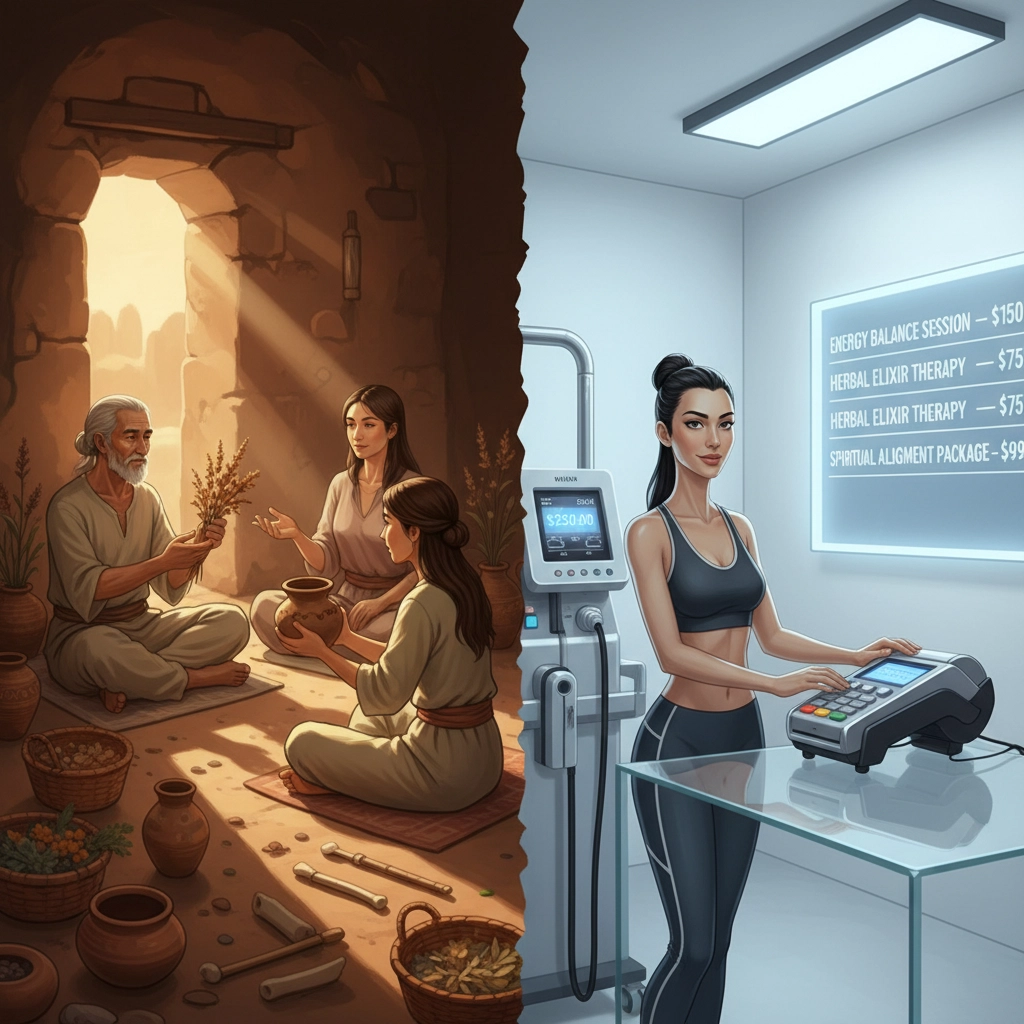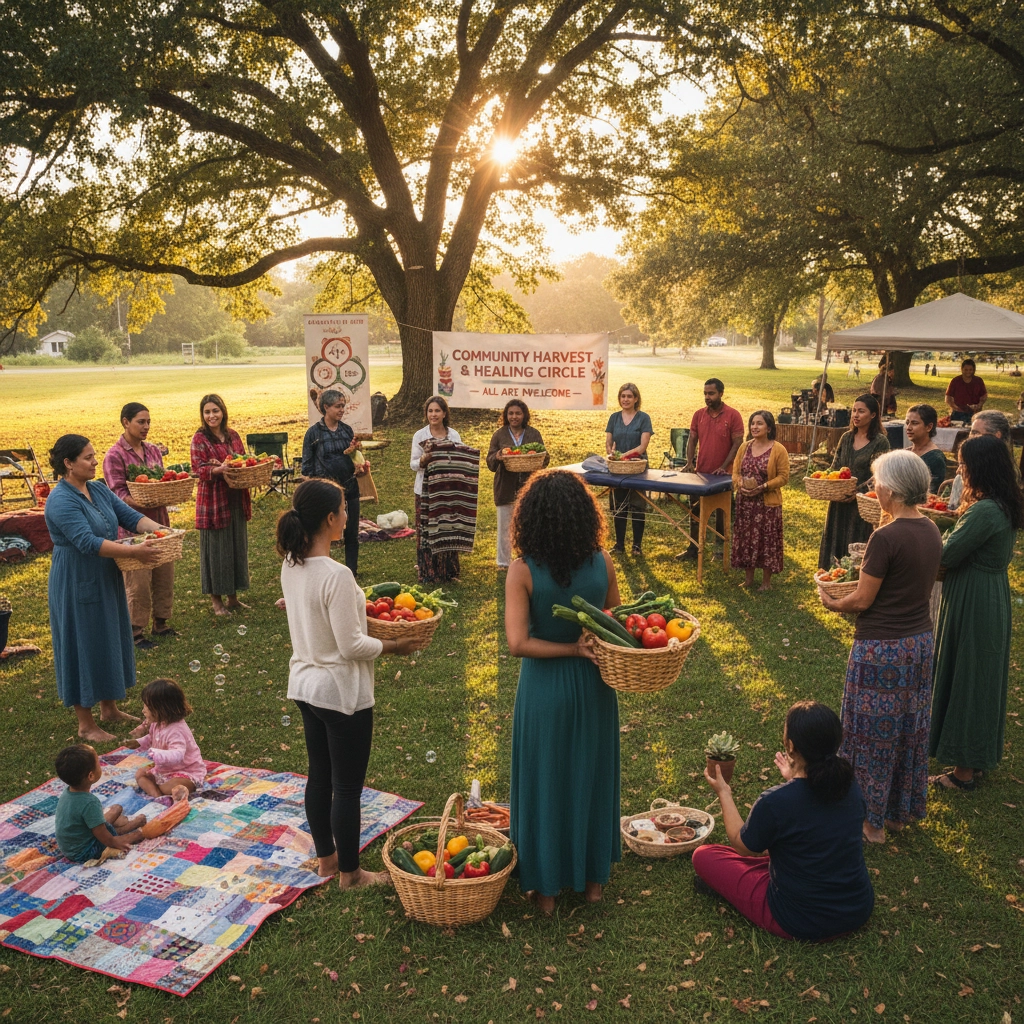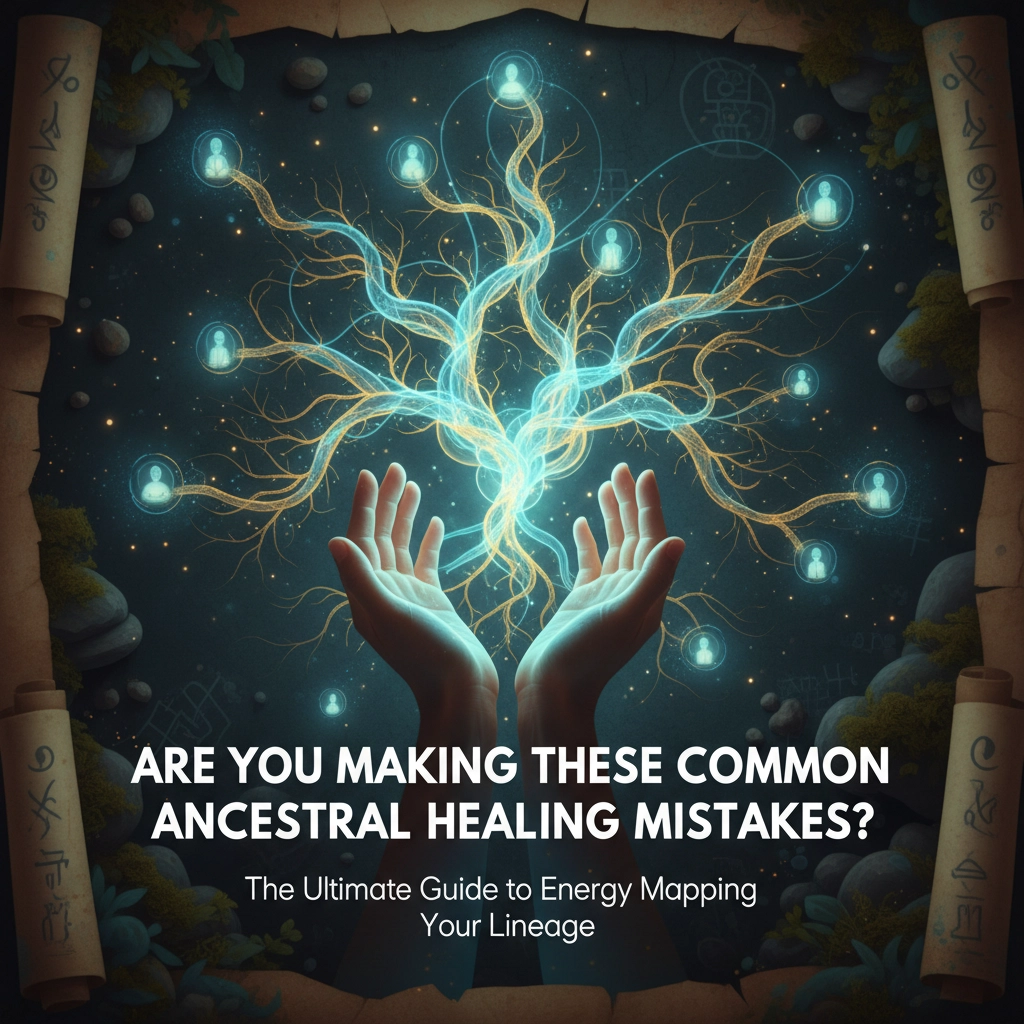Let's talk about the elephant in the spiritual room that nobody wants to address: we've turned sacred work into a luxury service for the privileged few.
You know what's happening out there? Single mothers choosing between groceries and a Human Design reading. Students skipping meals to afford an ancestral healing session. Workers stuck in soul-crushing jobs because they can't access the spiritual guidance that might actually help them break free.
Meanwhile, we're charging $200+ for basic chart readings and $500+ for healing sessions while preaching about divine accessibility and universal love.
The math doesn't add up, and your ancestors are not pleased.
The Price Tag Problem

Here's the brutal truth: most spiritual practitioners have positioned their work as premium services for people who can afford to drop serious cash on their healing journey. We've created a system where your bank account determines your access to your own spiritual birthright.
Think about it. A comprehensive Human Design reading costs more than most people spend on groceries in a week. An ancestral healing session can run the same as someone's rent payment. Sound healing workshops cost more than community college courses.
You're telling me that spirit only speaks to people with disposable income? That your guides only work with clients who can afford premium pricing?
That's spiritual capitalism, not sacred service.
Who Gets Left Behind
The people who need this work most desperately are the ones being systematically excluded:
The overworked and underpaid – Service workers, caregivers, teachers, and essential workers carrying everyone else's burdens while their own spirits slowly suffocate under financial stress.
Young adults drowning in debt – College students and recent graduates who are spiritually starving but can't justify spending their last $150 on a reading when they're living on ramen.
Single parents juggling everything – People raising children solo while trying to heal generational trauma, but every dollar goes to survival first.
Communities of color facing systemic barriers – The same populations that have been historically excluded from wellness spaces now face economic barriers to accessing the very spiritual traditions their ancestors created.
People with disabilities on fixed incomes – Individuals who need healing work the most but live on limited government assistance that barely covers basic needs.
These aren't edge cases. These are the majority of people walking around with unhealed trauma, unexplored gifts, and spiritual hunger that could transform not just their lives, but entire family lines.
The Sacred Contradiction

Here's where it gets really fucked up: most spiritual traditions were born from and served the oppressed, the marginalized, the forgotten.
Your ancestors didn't charge three months' rent for a healing ceremony. Traditional shamans, curanderos, root workers, and spiritual guides were supported by their communities through trade, reciprocity, and mutual aid – not by pricing out the people who needed help most.
African spiritual traditions, Indigenous healing practices, folk magic from around the world – these systems emerged from communities that understood survival depended on everyone having access to spiritual support and healing.
Now we've taken these sacred practices, packaged them in pretty websites and Instagram aesthetics, and made them available only to people with credit cards that won't get declined.
The spirits you're channeling came from people who would never recognize this commodified version of their wisdom.
The Sliding Scale Lie
"But we offer sliding scale!" you say.
Stop it. Most sliding scale offerings are still completely inaccessible to people living paycheck to paycheck. Your "reduced rate" of $75 is still someone's grocery budget.
Real sliding scale means some people pay $5, some people pay $500, and some people trade services or get it free because they're the ones who need it most urgently.
If your sliding scale doesn't include free spots for people in crisis, you're not really addressing accessibility – you're just giving yourself permission to feel better about your pricing.
What Genuine Accessibility Looks Like

Time for some tough love and practical solutions. If you're serious about serving spirit and not just your bank account, here's what needs to happen:
Create actual free spots – Not "scholarship opportunities" with lengthy applications. Reserve 20% of your calendar for people who simply cannot pay, period.
Offer genuine trade – Accept childcare, graphic design, cooking, cleaning, or other services in exchange for spiritual work. Your ancestors traded chickens and vegetables for healing – you can figure this out.
Community healing circles – Group sessions where the cost gets divided among participants. One person's chart reading becomes learning for everyone present.
Payment plans that actually work – Not "three easy payments," but real flexibility. Some people can pay $10/month for a year instead of $120 upfront.
Skill sharing networks – Connect practitioners who need services with each other. The tarot reader gets a massage, the sound healer gets their chart read, everybody wins.
The Ripple Effect You're Ignoring
When you price out the people who need spiritual work most, you're not just denying them healing – you're blocking the transformation that could heal entire family lines.
That single mother you can't afford to serve? She's raising the next generation. Her healing could break cycles that have been running for decades.
That college student living on food stamps? They might become the healer who serves their entire community if they can access the spiritual guidance they need now.
That overworked caregiver? They're the one holding everyone else together while their own spirit slowly dies. Their healing could create ripples that touch dozens of lives.
You're not just running a business – you're either contributing to collective healing or perpetuating spiritual apartheid.
Your Marching Orders

Here's what you're going to do if you're serious about this work:
-
Audit your current pricing – Can a full-time minimum wage worker afford your services without financial hardship? If not, adjust.
-
Create accessibility protocols – Establish clear policies for free and reduced-rate services. Make them visible on your website.
-
Partner with community organizations – Work with shelters, community centers, and mutual aid groups to reach people who need spiritual support.
-
Train others – Instead of hoarding knowledge, teach people in marginalized communities to do this work for themselves and each other.
-
Check your motivation – Are you in this for spiritual service or lifestyle maintenance? Be honest about what's driving your pricing decisions.
The Bottom Line
Your gifts aren't meant to make you rich off other people's spiritual desperation. They're meant to serve the healing of the collective, starting with the people who need it most.
The spirits didn't choose you to be a spiritual entrepreneur – they chose you to be a conduit for healing that reaches the people traditional systems have failed.
So here's your choice: continue pricing out the people who need your work most while convincing yourself you're serving the light, or radically restructure your practice to actually serve spirit instead of your comfort.
Your ancestors are watching. The people you could help are suffering. And your spirit knows exactly what it came here to do.
What's it going to be?



